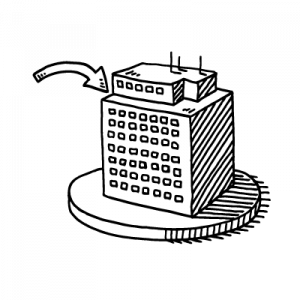An overview of Harvard's LLM
By LLMcomplete in The Harvard LLM experience on May 20, 2009
I discovered llm-guide when I was at the third year of my legal studies at an old University of a small civil law country in continental Europe. That was roughly three years before I started preparing my applications for an LLM program in the US. Before the time of the application came I had already read hundreds of posts by people asking for information, evaluating programs on reputation basis, reporting how they handled the application process, reporting their experience from actually pursuing the LLM degree at a specific university etc. I must confess that the wisdom contained in all these posts proved to be extremely helpful, while I was studying, since I knew what kind of extracurricular opportunities I should chase and on what I should focus as a student in order to be well-qualified for admission to an eminent LLM program. Because of the llm-guide board I was also well aware how to handle my application, how to write the essays and the statements. I also learned a lot about the strengths and weaknesses of the US LLM programs and thus I knew which schools to apply to and which schools to avoid.
In late summer 2007, about a month after I had completed my undergraduate studies in Law, I downloaded the applications and embarked on the preperation for the TOEFL exam. I had to chase down the –indifferent- professors of my University for letters of recommendation, translate my transcripts and prepare essays tailored for each school. I applied to Harvard, Chicago, Columbia, Berkeley and Michigan with my first preference being Harvard, but with my realistic goal being Chicago. I received admission from Michigan first, then from Chicago and then from Berkeley. I was waiting for responses from Harvard and Columbia, but I had already made up my mind that if I didn’t receive admission to Harvard, I would go to Chicago. In late March I received an e-mail from Harvard stating that I was offered a place in their LLM program. I literally cannot describe my excitement. Going to Harvard was a dream I had since I was 16 years old and this e-mail made it come true.
The time from late March to mid-August, when I arrived in the US for the orientation, went by really fast. During these four months I had to arrange for a visa, secure funding, make housing arrangements and pre-register for courses. People at Harvard were already eager to help me out by e-mail with all issues and that made things somewhat easier than I expected.
After the first exciting couple of days at Harvard, when I met classmates and explored the campus and Harvard square, things started becoming a little be more difficult. We were told that at the end of the orientation we would sit for an exam on the fundamentals of US law. There was a formal schedule of lectures that would run for 10 days until late August and also reading materials of about 300 pages. We were told that this exam would not count for our grade in the LLM course and was just for us to familiarize with how it is going to be to write exams at the Harvard Law School. Indeed the performance in this exam would not count for the final grade, but still you can imagine that no person that is admitted to Harvard wants to start the year by not doing his assignments. Therefore, many started the year by not sleeping well….
Early September the fall term started and we would get to sit in real classes with JD students. For every course there was either a book that we should buy –in exchange for a significant amount of money- from Harvard’s bookstore or some photocopied materials that we could take for free from an in-house copy center. Most courses included both a book and photocopied materials from the copy center. In any case the system was “client-friendly” in the sense that we were not simply provided with a reading list that required us to go in the library, find and copy the materials ourselves (as it happens in the UK for example), but we were directly provided with the actual materials in both hard copy and electronic form. That really saved us a lot of time.
Depending on the amount of credits that one was taking in a term, one should study from 250 to 750 pages per week. Professors have a series of ways to ensure that students do the readings. First, reaction papers: before each class you should upload a 2-4 pages text that bears on that day’s readings. Second, panels: in each class a number of students will be called to discuss cases with the professor and answer the latter’s questions. Usually you know one or two weeks ahead when it is your turn to be on panel and thus you have time to prepare adequately. Third, the Socratic blitzkriegs: professor calls students in a random way to answer questions pertaining to that day’s readings. This last method is the worst and not all professors follow it, but if they do it means that, no matter what, you have to be prepared everyday for class and you need to have done all the readings.
The good thing about all that is that your grade in a course will not depend entirely on how well you did in the final exam, but will also be based on your performance on reaction papers or class participation. There is a continuous evaluation over the term and therefore you feel a little be less stressed when the time of the exam comes.
Speaking of exams, I should state that exams can be in-class of take-home. In both cases you should take the exam on your laptop and things get really complicated when you ask to handwrite your exam (to be sure, I know of no student that asked to handwrite his exam). In-class exams last for three hours and are usually open-book. However, there is LITERALLY no time at all to open books in the exam. You start typing from the very first second of the exam and stop typing when the proctor says that you’re done. If you need to open a book to look for an answer, then you’ll most likely not have time to answer all questions. Take-home exams last for 8 hours, but I didn’t have any course that had one, so I cannot comment on how it is.
As far as grades is concerned, there is this thing that is called “curve”. That means that there is a pre-determined and specific number of people who are going to receive an A+, a specific number of people getting an A, A- and so on. That means that even if you indeed have answered perfectly all questions, you still might not get an A+ because there might be some other people who have written even “more perfect” exams than you. And at Harvard there are many such students. An LL.M. student is usually at a disadvantage to JD students with regard to grades for two reasons: English is JDs’ native language and JDs are used to writing an exam on their laptop. This is why most LLM students will end up with a B- or a B.
LLMs also spend a significant amount of time writing their paper, which can be 25-pages long for 0-1 credit or 75-pages long for 2-3 credits. Most people end up spending more time on their paper relatively to the credits they receive, but writing a paper at Harvard is really a great experience due to the resources that you have. There is no article or book that you’ll need that they don’t have and in the extreme case that they don’t have a book that you need, they are going to buy it for you at no time. You can really pick any topic you like and you can be sure that there will be dozens of resources available. We’re talking about the best law library in the world.
The only downside of the program is that you have very little time available to do other stuff than studying. Some LLMs took it easy, choosing courses that they had studied before or courses that were somewhat overlapping or that were not particularly demanding. Especially if you don’t care about grades you might be able to enjoy your year a bit by travelling a little bit or going out every now and then. But this is just the exception. The rule is that you will study your butt off at Harvard. Studying never stops. It starts from day 1 and it only ends on the last day of the exams. It’s a very rigorous and tough program. Very often you will end up doing nothing else but studying from sunrise to sunset (and going to classes). You won’t have many careless and relaxing moments to remember and not so many opportunities to enjoy the beautiful campus or the cafes of Harvard square.
Comments
Tallal, Nov 22, 2010 06:30
Quit helpful and informative
becarius, Jul 04, 2010 03:53
Hey thanks for that complete description, very helpful indeed!
uhm, I have one doubt though
How many hours per week did you have at HLS LL.M?
seema, Jun 07, 2010 09:35
Hi:
very informative inofmrtion. can i ask you more information. let me know.
Thanks& Regards
Seema
lumskitty, May 25, 2010 22:18
your write up is very useful,but i would like you to clarify something. exactly what sort of extra-curricular activities should an undergraduate participate in to be eligible for admission into harvad law school? email add is omolarah@yahoo.com
sheela adaveeshaiah, Oct 24, 2009 15:32
nice write up.it gives an overview of experience of studying LLM at harvard. really a great guiding article for future aspirants.
jenna, Sep 17, 2009 13:08
Hey, nice, detailed write up. It gave an insightful overview into the workings of Harvard Law School. If would really help if you could write some comments/tips reagrding 'getiing into' harvard.. Thanks for all the information.
In any case, my email is jenna.narayan@gmail.com
ravi, Jun 22, 2009 12:25
thats a gr8 insight into HLS LL.M. I had applied for 2009 but failed since my LL.B. was about to be completed.I am applying for 2010 and a little more personalised hlp wud go a long way for my applications. my email....ravi_15_2000@yahoo.com
tallking, Jun 10, 2009 07:11
a much similar system*
tallking, Jun 10, 2009 07:11
Very nice way of putting your experience. I hope the top 15 law schools in US follow a much similar as Harvard...
TANKH1, Jun 06, 2009 05:56
Wow, impressive and very informative. Did you top your faculty at your old University of a small civil law country in continental Europe? I mean I probably just need to have some rough idea where I'll stand, would you mind sharing your educational background with us?
TANK
LLM News
LLM Articles
Why Tech Law is the Hot New LL.M. Focus in an AI Era
Nov 14, 2024
Schools are helping lawyers prepare for a fast-changing legal world impacted by AI and developing technology. Students can benefit from a cutting-edge curriculum and new job opportunities.
Connect with Top California Law Schools
Nov 07, 2024
The California Law LL.M. Consortium is giving prospective students in Milan and London the opportunity to meet school and admissions representatives. They will hear about top legal issues and learn about how a U.S. LL.M. can benefit their careers.
Leaping Back into Firm Life After an LL.M.
Nov 05, 2024
Leaving school behind can feel daunting but if a graduate understands the different expectations and is conscious of new technology, it can make returning to a firm that much easier.
Making the Most of Your LL.M.: Why Extracurricular Groups Matter
Oct 28, 2024
Activities outside class time can give students a more well-rounded experience during their degree. They can build crucial skills and expand a student's network to benefit their post-school life.













